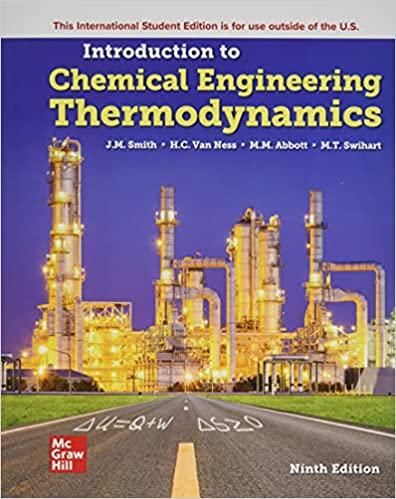Question
1. The diffusion condition for which the flux is independent of time is known as Random Diffusion Non-Steady State Diffusion @ Steady State Diffusion Patterned
1. The diffusion condition for which the flux is independent of time is known as
Random Diffusion
Non-Steady State Diffusion
@ Steady State Diffusion
Patterned Diffusion
2. Concentration gradient is the slope of the concentration profile curve at some specific point.
Tue
@ False
3. Oxygen gas is flowing through a 12m long circular pipe with a radius of 20cm. The concentrations of oxygen at the ends of the pipe are 30 kg/m? and 10 kg/m. Given that the diffusion constant for the oxygen gas at 20C is 1.8 x1075 m2/s, what must be the diffusion rate of the gas?
@ 6.91x 10^-6kg/s
O 3.77 x 10^-6 kg/s
O 4.22% 10^-6 kg/s
2.90% 10^-6 kgs
4. Which of the following processes does not involve diffusions of atoms in a material?
Addition of impurity atom in semiconductors
Cutting a copper wire into two
Annealing of steel
Adsorbing a cesium atom anto a molybdenum surface
5. A plate of iron is exposed to a carbon-rich atmosphere on one side and a carbon-deficient atmosphere on the other side at 700 C. If a steady-state diffusion is achieved, what must be the diffusion flux of the carbon through the plate given the concentrations of carbon at 5 mm and 10 mm beneath the surface are 1.2 kg/m? and 0.8 ke/m3, Assume that the diffusion coefficient at the given temperature is 3 x 10^-11 m2/s,
1.2% 10^-9 kg/m2s
4.8 10^-12 kg/m2s
5.3x10^-12 kg/m2s
@ 2.4% 10^-9 kg/m2s
6. The concentration profile is represented as a plot of area versus distance into the solid material.
@ False
O True
7. The mathematics for non-steady state in a single (x) direction (and when the diffusion coefficient is independent of concentration) are described by
@ Fick's 2nd Law
Fick's Ist Law
Diffusion Coefficient Equation
Gaussian Error Equivalence
8. This term refers to the diffusion occurring for pure metals, but all atoms exchanging positions are of the same type.
@ Self Diffusion
Vacancy Diffusion
External Diffusion
Internal Diffusion
9. Using the diffusion coefficient equation wrt temperature, find the diffusion coefficient of a proton onto a germanium surface with a temperature-independent preexponential equal to 2 cm/s at 800 C with an activation energy of 57500 cal/mol.
O 1.25x10^-12 cm2/s
O 2.96x10^-12 cm2/s
@ 3.88x10^-12 cm2/s
O 2.60% 10^-12 cm2/s
10. The diffusion coefficient equation as shown below
D= D0e (Qd/RT)
@ The diffusion coefficient is a function of temperature,
The diffusion coefficient is zero in extreme environments.
The diffusion coefficient is constant for all materials,
The diffusion coefficient is varying with respect to time.
11. R is known as the ideal gas constant which is equal to
8.31 J/mol-K
9.81 J/mol-K
O 11.48 J/mol-K
12.65 J/mol-k
12. What is the mathematical relationship between diffusion flux and diffusion elapsed time?
directly proportional
equal
inverse square law
@ Inversely proportional
13. For steady-state diffusion, diffusion flux is proportional to the negative of the concentration gradient according to
Diffusion Coefficient Equation
Gaussian Error Equivalence
@ Fick's 1st Law
Fick's 2nd Law
14. The figure below shows the motion of a substitutional atom. What type of diffusion occurred here?
Internal Diffusion
Vacancy Diffusion
Interstitial Diffusion
Self Diffusion
15. The figure below shows the motion of a substitutional atom. What type of diffusion occurred here?
@ Vacancy Diffusion
Interstitial Diffusion
Thermal Diffusion
Self Diffusion
Step by Step Solution
There are 3 Steps involved in it
Step: 1

Get Instant Access to Expert-Tailored Solutions
See step-by-step solutions with expert insights and AI powered tools for academic success
Step: 2

Step: 3

Ace Your Homework with AI
Get the answers you need in no time with our AI-driven, step-by-step assistance
Get Started


